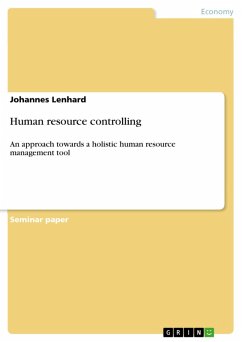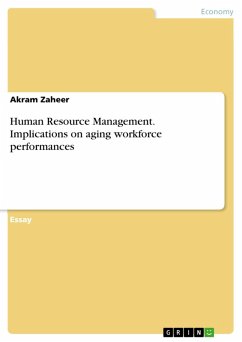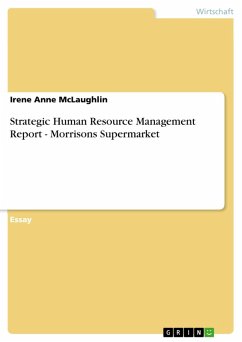Seminar paper from the year 2011 in the subject Leadership and Human Resources - Miscellaneous, grade: 80% (1,0), University of Exeter (Business School), language: English, abstract: 1. Introduction The process of globalisation of business stimulates the mobility of employees and necessitates the Human Resource Management of multinational corporations (MNC) to deal with given cultural conditions of particular countries in order to assess and evaluate their characteristics and value systems. On this basis, a common value orientated corporate culture might be developed which gives an MNC orientation and hence the basis for business success (IBM, 2011). In principle, political and economic characteristics across the globe are structured in terms of the Anglo-American and Rhineland capitalism (Michel Albert, 1991). Cultural differences can be measured on a global, regional, national and organisational level (Edwards and Ress, 2006) and can be distinguished in "Linear-Active-Multi-Active" societies such as e.g. Latin America that is flexible in terms of management rules and "Dialogue-Orientated-Data-Orientated societies" such as e.g. Germany that is more linear orientated focusing on e.g. punctuality (Lewis, 1999). Mostly, the cause for failure in cross-cultural businesses is not the dissimilarity of partners but the lacking understanding for the adverse culture (Trompenaars and Hampden-Turner, 1997). The greater the cultural distance however, the more there is a need for parent country national control. Therefore, relevant actions of the International Human Resource Management (IHRM) include having the awareness and knowledge of the diverse cultural differences, supporting assignees in this sense and analysing the difficulties of intercultural interaction within the corporation in order to minimize barriers to collaboration (Holtbrügge, 2008). The subsequent study will critically look into the subject of the IHRM with focus on expatriate adjustment. Beginning with an explanation of the basics and major reasons of expatriate adjustment, the study analyses the cultural dimensions that might influence this challenge. Subsequently the study discusses the actions of the IHRM concerning deployment and suggests measures how expatriate adjustment in MNCs might be facilitated.
Dieser Download kann aus rechtlichen Gründen nur mit Rechnungsadresse in A, B, BG, CY, CZ, D, DK, EW, E, FIN, F, GR, HR, H, IRL, I, LT, L, LR, M, NL, PL, P, R, S, SLO, SK ausgeliefert werden.









